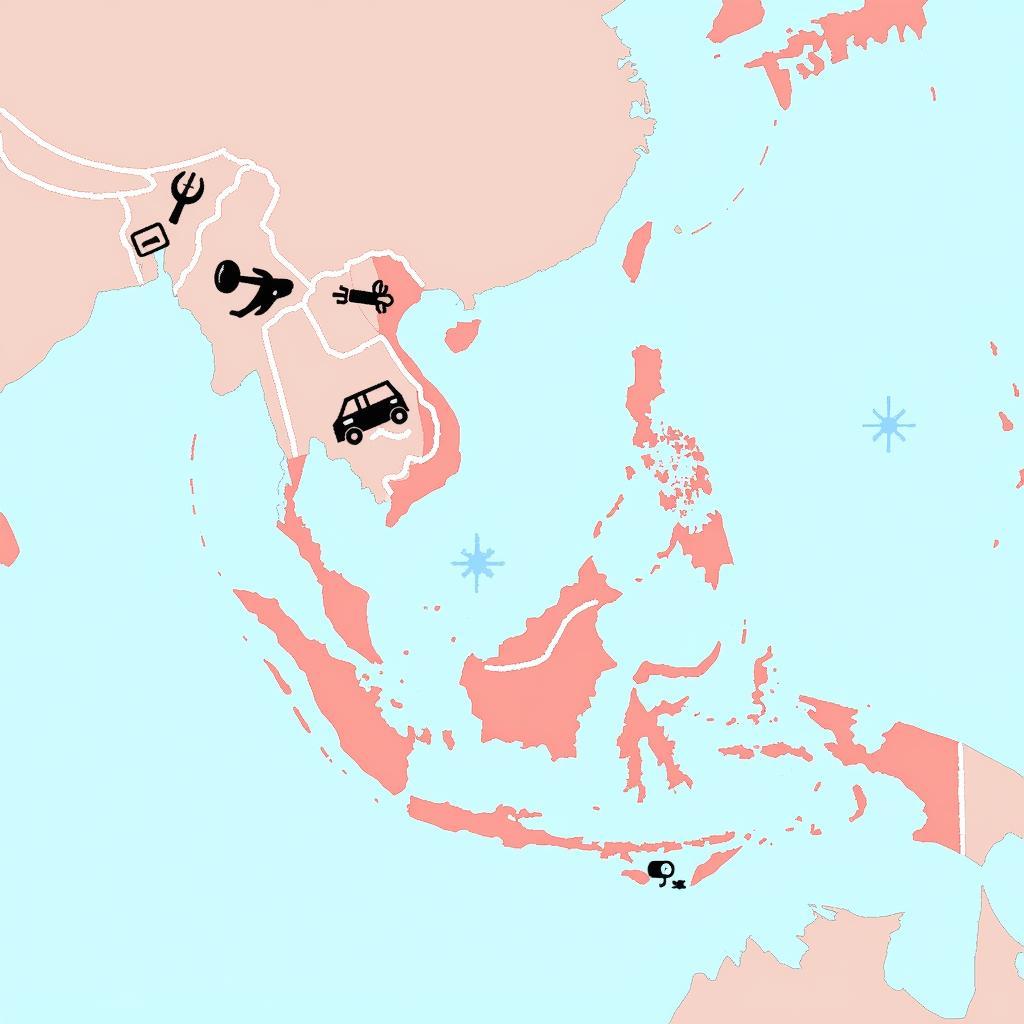The term “ASEAN shutdown” can refer to a range of scenarios, from temporary disruptions in specific sectors to a complete halt of economic and social activities across the ASEAN region. While a complete ASEAN shutdown is highly unlikely, understanding the potential triggers, impact, and implications of such an event is crucial for policymakers, businesses, and citizens alike.
This article delves into the various facets of a hypothetical ASEAN shutdown, exploring its potential causes, consequences, and the measures that can be taken to mitigate its impact.
Potential Triggers of an ASEAN Shutdown
While a complete shutdown of the ASEAN region is improbable, several factors could theoretically contribute to such an event:
- Pandemic: A highly contagious and deadly pandemic, similar to COVID-19 but with a higher mortality rate, could overwhelm healthcare systems and necessitate stringent lockdowns across ASEAN member states.
- Natural Disasters: A series of catastrophic natural disasters, such as earthquakes, tsunamis, or volcanic eruptions, affecting multiple ASEAN countries simultaneously could cripple infrastructure and disrupt supply chains, leading to a region-wide crisis.
- Political Instability: Widespread political unrest, armed conflicts, or cross-border tensions escalating into full-blown conflicts could force governments to implement emergency measures, including border closures and restrictions on movement, effectively shutting down the region.
- Cyberattacks: Large-scale, coordinated cyberattacks targeting critical infrastructure, such as power grids, financial institutions, and communication networks, could cause widespread chaos and disruption, prompting governments to shut down affected systems, leading to a virtual standstill.
 Impact of ASEAN Shutdown
Impact of ASEAN Shutdown
Economic Fallout of an ASEAN Shutdown
An ASEAN shutdown would have severe and far-reaching economic consequences for the region and the global economy:
- Trade Disruptions: ASEAN is a major player in global trade, and a shutdown would disrupt supply chains, halt exports and imports, and lead to shortages of essential goods.
- Investment Freeze: The uncertainty and risks associated with a shutdown would deter foreign investment and lead to capital flight, further weakening ASEAN economies.
- Job Losses: Businesses across various sectors would be forced to shut down or scale back operations, resulting in massive job losses and rising unemployment.
- Tourism Collapse: Tourism, a significant contributor to many ASEAN economies, would come to a standstill, impacting livelihoods and businesses reliant on the industry.
Social and Humanitarian Consequences
Beyond the economic repercussions, an ASEAN shutdown would have profound social and humanitarian consequences:
- Food Security: Disruptions in supply chains and agricultural production could lead to food shortages and price hikes, disproportionately affecting vulnerable populations.
- Healthcare System Overload: A surge in demand for healthcare services coupled with disruptions in medical supply chains could overwhelm healthcare systems, hindering access to essential care.
- Social Unrest: Economic hardship, unemployment, and shortages of essential goods could fuel social unrest, protests, and crime rates.
- Mental Health Crisis: Isolation, fear, and uncertainty stemming from a shutdown could exacerbate existing mental health issues and lead to an increase in anxiety, depression, and other psychological distress.
 ASEAN Preparedness for Shutdown
ASEAN Preparedness for Shutdown
Mitigating the Impact: Preparedness and Resilience
While a complete ASEAN shutdown is a worst-case scenario, it underscores the importance of regional cooperation and preparedness:
- Strengthening Healthcare Systems: Enhancing healthcare infrastructure, building capacity for disease surveillance and response, and ensuring equitable access to healthcare are vital.
- Enhancing Cybersecurity: Investing in robust cybersecurity measures, promoting regional cooperation on cyber threats, and raising awareness about cyber hygiene are crucial to mitigate risks.
- Disaster Risk Reduction: Investing in early warning systems, disaster preparedness training, and resilient infrastructure is essential to minimize the impact of natural disasters.
- Economic Diversification: Reducing reliance on a single sector, promoting innovation and digitalization, and strengthening social safety nets can enhance economic resilience.
Conclusion: A Collective Effort for a Resilient ASEAN
While the probability of a complete ASEAN shutdown remains low, the potential consequences necessitate proactive measures to enhance preparedness and resilience. Regional cooperation, robust institutions, and a shared commitment to human security are essential to navigating such unprecedented challenges and ensuring a stable, prosperous, and resilient ASEAN.
Do you have questions about specific sectors in ASEAN and how they could be impacted by a hypothetical shutdown? Explore our insights on:
Need support or more information? Contact our 24/7 support team at +84369020373 or [email protected]. We’re here to help! Or visit us at Thôn Ngọc Liễn, Hiệp Hòa, Bắc Giang, Việt Nam.

